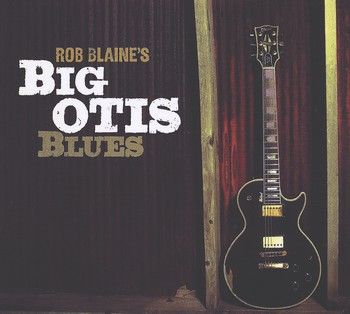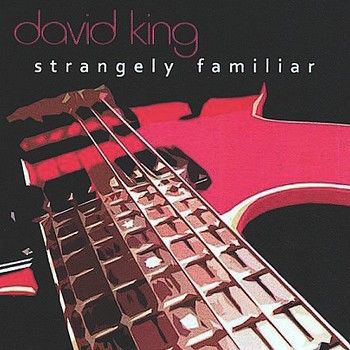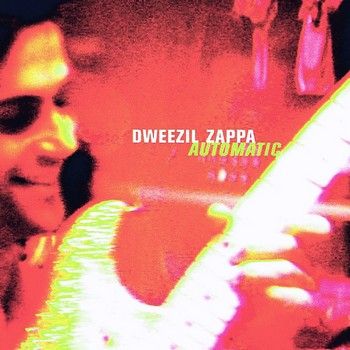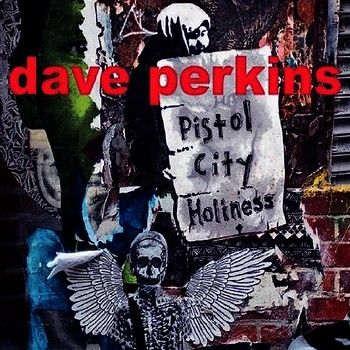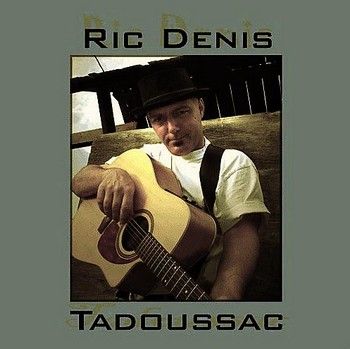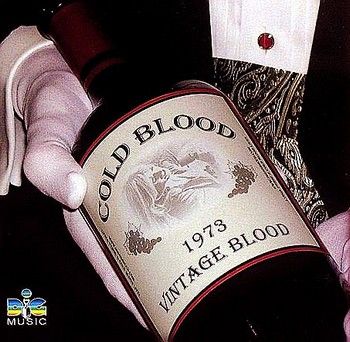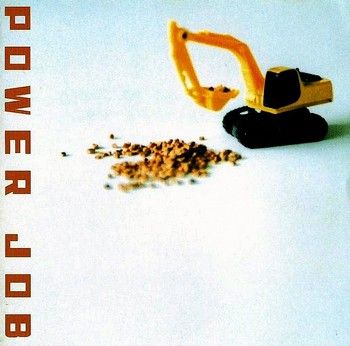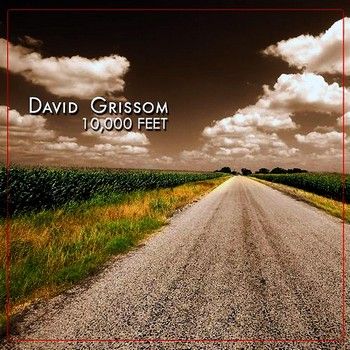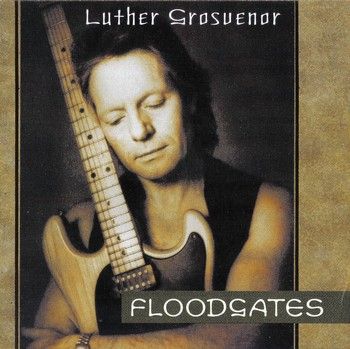
Luther Grosvenor - Floodgates - 1996 - Ruf
English guitarist Luther Grosvenor was one of the most inventive guitarists of his generation. Regarded as one of the clutch of flashy young axe-slingers who emerged at the end of the 1960s and early 1970's and turned rock music on its head. Luther played guitar in Spooky Tooth, briefly in Stealers Wheel and under the pseudonym "Ariel Bender", in Mott the Hoople. With artists like Brian May, Mick Ronson, and Paul Kossoff, Luther Grosvenor rewrote the guitar players' rule book, simply by remembering that there is more to playing guitar than technique. You have to have some fun as well.
Released in August 1996, the album features the same musicians who worked with Luther on the Peter Green album: Steve Dolan (ex- Hard Meat) on bass, Dave Moore on keyboards, and Mike Kellie on drums. Luther handles all the guitar and lead vocal chores, with the exception of two covers sung by Jess Roden. Five of the nine tracks were written by Luther and his Blues `92 bandmate John Ledsom. Luther said that "'Floodgates’, ‘Evesham Boy’, ‘Ninsky Prospect’, all those songs were put together for the album. John and I got together and knocked out these songs, and I took them to the studio. John’s not a studio player at all, he plays a bit of guitar and a little bit of bass, but he’s not a studio man. He’s hardly played onstage in his life. John did well, we wrote some good things together. Everything that you hear on there is one or two takes. When we actually played ‘Floodgates’ back … that guitar that you hear is just the rough one. We decided to keep that, because it had everything the guy wanted. It had great feel, and the notes were good, so we left it. I think the album is great, and we recorded the whole lot in like ten days. There were no illusions of putting that album out and having it do big business. What it did for me, it was a platform, as bit of a stepping stone for another one. But if I never make another album again, I made a fucking great album and it makes me quite happy". © http://www.justabuzz.com/lg-0-bio.shtml
A bit rough around the edges, but this album was recorded in ten days, and the songs were recorded in one or two takes. Sound lacks clarity at times, but not enough to spoil your enjoyment. If you like Mott The Hoople/Ian Hunter, you will find plenty of influences here. Luther is a very underrated guitarist and songwriter, and this is a very overlooked album. The brilliant Jess Roden sings lead vocals on two tracks. Check out Luther's "Under Open Skies" 1971 album, Spooky Tooth's "Spooky Two" album, Mott the Hoople's "The Hoople" album, and "Rattlesnake Guitar: The Music of Peter Green" album [All tracks @ 320 Kbps: File size = 100 Mb]
TRACKS / COMPOSERS
1.Evesham Boy (Luther Grosvenor/John Ledsom)
2.Best Years Of My Life (Luther Grosvenor/John Ledsom)
3.Floodgates (Luther Grosvenor/John Ledsom)
4.Fullness Of Time (Mike Kellie)
5.I Wanna Be Free (Joe Tex)
6.Ninsky Prospect (Luther Grosvenor/John Ledsom)
7.Loneliest Man In Town (Luther Grosvenor/John Ledsom)
8.Fire Down Below (Bob Seger)
9.Cathy (Dave Moore)
10.Floodgates (Acoustic) [Hidden Track] (Luther Grosvenor/John Ledsom)
MUSICIANS
Luther Grosvenor - Electric Guitar, Acoustic Guitar, Rhythm Guitar, Vocals, Background Vocals
Mike Dolan - Rhythm Guitar
Steve Dolan - Bass
Dave Moore - Hammond Organ, Electric Piano, Synthesizer, Kurzweil Synthesizer, Clavinet
Mike Kellie - Drums, Percussion, Shaker, Wood Block, Voices, Background Vocals
Jess Roden - Lead Vocals on Tracks 5, & 8
Jim Capaldi - Background Vocals on Track 4
DETAILED INFO
Born on 21 December 1946, Luther Grosvenor grew up in Evesham in the same estate as Traffic's Jim Capaldi. His first prominent engagement came with a band called Deep Feeling, which included Capaldi, Gordon Jackson, Dave Meredith, and John Palmer. Previously, Luther had been in an Evesham band called Wavelength. Deep Feeling evolved from a Worcester band called the Hellions, which featured Dave Mason on guitar. The band also recorded briefly as The Revolution in 1966, before packing it in. Many reference books list Luther as a member of both The Hellions and The Revolution, but although he was good friends with them, he was not in either of those bands. [Luther] "The Hellions were a Worcester band. A lot of people get confused with that one, but their guitar player was Dave Mason. I was not in that band, although I knew them very well and I used to go and watch them rehearse. The band that I was in before Deep Feeling was a band called The Wavelength, with all of the Evesham guys where I grew up. Then I got promoted to Deep Feeling with Jim Capaldi. Jim and I grew up together, he lived just around the corner and we knew each other’s families". When Steve Winwood formed Traffic with Jim Capaldi and Dave Mason in 1967, there was no room for Grosvenor in the band. Winwood gave Luther a tip that the Carlistle-based VIPs were looking for a guitarist, and so he joined up with them. The VIPs already had four singles under their belt, the last two being recorded for Island Records under the watchful eye of Guy Stevens. At the time Luther joined, the band included a young Keith Emerson along with Mike Harrison, Greg Ridley, and Mike Kellie. Emerson soon left, and the band changed their name to Art and released the Supernatural Fairy Tales LP (UK Island ILPS 967) in 1967. The band also backed other artists, most notably for the Hapsash and The Coloured Coat featuring the Human Host and the Heavy Metal Kids LP (UK Minit MLS 40001E) in 1968. [Luther] "Apart from being a great guy, he was a great motivator. If you had an eight hour session, he was excited from the first minute to the last minute. Guy was very creative, and did a lot for us. He did a lot for Mott The Hoople, and Traffic, and lots and lots of other people. But he also had a very dark side as well, a very down side. If he came into a session on a downer … a very strange man, Guy". With the addition of Gary Wright, Art changed their name to Spooky Tooth. The band cut four albums for Island, starting with 1968's It's All About (UK Island ILPS 9080). Their second album Spooky Two is acknowledged as their best work, and the group garnered critical praise but only moderate commercial success. An indication of the group's reputation among ytheir peers came in 1969, when Luther was on the list as a potential replacement for Brian Jones in the Rolling Stones. The group broke up after the 1970 album The Last Puff (UK Island ILPS 9117). After Spooky Tooth packed it in, Luther took Chris Blackwell up on an offer to record a solo album. Luther and his wife Githa spent three months at Blackwell's villa in Spain, working on material with encouragement from his neighbor, film star Hugh Milias. The result was Under Open Skies (UK Island ILPS 9169), released in October 1971. Neither the album nor the single, Here Comes The Queen, made a dent on the charts. Plans to tour in support of Under Open Skies never materialized, nor did the reported followup album to be recorded with help from Jim Capaldi. [Luther] "Chris Blackwell had just gotten a villa in Spain. He said, “Look, why don’t you go away for a couple of months and write an album?” So I went down to Spain. We were partying and not really writing songs, so basically we just got the skeleton of it together down there, and came back and finished it off in London. When I made that album, it was never meant to be a guitar player’s showpiece. It was just a little album of songs. It’s a pleasant record - nothing to scream about, but a pleasant album. Some of the songs are quite pretty even today when I listen to it, which is probably twice a year. It was my first solo effort, and I’m very proud of that record". In late 1972 Mike Harrison and Gary Wright decided to reform Spooky Tooth, building a new group using musicians from their recent solo efforts. Luther was not the least bit interested in joining them. Instead, he replaced Gerry Rafferty in Stealer's Wheel in early 1973, joining Joe Egan, Paul Pilnick, De Lisle Harper, and Rod Coombes. They toured for the first six months of 1973 in support of the band's debut album, which had already been recorded and released before Luther joined. Although most of Luther's time with Stealer's Wheel was spent on the road, he did make it into the studio to record a single called Everyone's Agreed That Everything Will Turn Out Fine (UK A+M AMS 7079), which also appeared in the USA and Holland. [Luther] "I was in limbo, and they asked me to join the band. Rafferty came back in while I was there, which was a little bit odd because I had actually taken his place. It was a strange band, Stealer’s Wheel. Rafferty was a great songwriter, but the band didn’t have the sound and performance that he would have projected with his own band. There were five pieces that never really fit together. I think for that simple reason alone it was never going to work. There was nothing wrong with people’s playing or anything like that, it was just the wrong lineup. It came to a very quick halt, but looking back, I’m glad that I did that". Immediately after Stealer's Wheel broke up in July 1973, Luther took a phone call in Hampstead from Ian Hunter, asking him to join Mott The Hoople. With only a few days rehearsal, he found himself onstage as Ariel Bender for the second half of Mott's USA tour. The band returned to the UK in early November for a tour supported by Queen, capped by a pair of shows at the Hammersmith Odeon which were put to tape in anticipation of a live album. January 1974 saw Mott The Hoople enter Advision Studios to record The Hoople. One of the first chores for Luther was to re-record Mick Ralph's guitar on Roll Away The Stone. After a short warm up tour of the UK in late March, Mott The Hoople returned to the States for two more months of dates. The high point for the band came in early May, as they became the first rock band to sell out a week of shows on Broadway. These shows at the Uris Theater were also recorded for the upcoming live album. [Luther] "There were some great nights there. Mott The Hoople at the Uris, it was fucking amazing. I’m not saying for a minute that we played amazing every night, it didn’t happen like that. But looking back, it was wonderful, absolutely wonderful. Great times. I’m in and out of the Live album. When I listen to the performances, not just my own, I think it wasn’t one of the better nights that could have been recorded. I think some of the songs were a little bit overweight, but it was live and that’s what you get". Although the US tour was a crowning achievement for the band, by fall 1974 it was clear that Luther was not cut out for the Mott The Hoople role. Although press reports indicate that Bender quit Mott, it was more of a polite sacking. Mick Ronson was brought in to play out the final month of live dates, before the band called it quits for good. After he parted company with Mott The Hoople, Luther was reported to be working on a solo album with Pete Gage and Steve York from Vinegar Joe. Once again, the plans for a second solo album did not pan out. He then spent a month as guitarist for a newly-formed band called Motorhead. [Lemmy Kilminster] 'The original line up stunk! It was really fucking terrible. It was five piece band. I wanted to form the MC5 of Britain. We had a bad drummer - Lucas Fox - and Larry Wallis. Me and Larry seemed to rub up against each other and I don't mean that sexually. Another guitar player, Luther Grosvenor, was in the band for a month - his stage name was Aerial Bender, great guitar player. We were going to get a singer and that never happened, so I got stuck with the singing. That line up fell apart and then it took off as a trio.' In mid-1975, Luther got together with his friend Paul Nicholls and bankrolled the formation of Widowmaker. In addition to Nicholls, the band featured Bob Daisley, Hugh Lloyd-Langton, and reluctant singer Steve Ellis. The band's debut LP, Widowmaker (UK Jet LP 15), was released in April 1976 . After touring the UK and the USA in support of the debut album, Ellis left the band and was replaced by John Butler. The followup LP, Too Late To Cry (UK Jet UAG 30038), was to be the band's last. [Luther] "I formed Widowmaker with my own money. The first recruit was Paul Nicholls, who was a friend of mine who played with Lindisfarne. Then we got Bob Daisley from Chicken Shack. Roger Chapman, who used to sing with Family, said “Look, I’ve a friend of mine, great singer. I don’t really know whether he’s interested, but give him a bell.” So I went ‘round to see Steve Ellis, and he wasn’t interested at all. He’s just packed in his band called Ellis and he didn’t want to do anything for a while. But I kept on and on, and eventually we coaxed him round to come down and have a sing and a play. And he joined, and we got Huw Lloyd Langton on guitar as well. We were thinking about a keyboard player. We thought about having some keyboards to give it a little color. But we went for the other guitar, which was a lot better as far as I was concerned. I think Steve canned the idea of a keyboard player". Luther kept a low profile for the next decade, preferring to build his own decorating business rather than risk the uncertainty of the music industry. Although he did record a few sides with Verden Allen in 1978, it wasn't until the early 1990s that Luther returned to the music scene in a band called Blues `92. The band featured Luther on guitar, John Ledsom on bass, Darren Horn on drums, and Pete Devoy on vocals. Boues '92 gigged briefly in and around Liverpool, and headlined the Wirral International Guitar Festival in November 1992. Although Blues '92 didn't last very long, the project did prove that Luther still had his edge. [Luther] "Blues `92 obviously happened in `92, it seems like a hundred years ago now! John Ledsom and I were friends. John lives on the Wirral which is just outside of Liverpool, and I used to go up there to do some decorating for him. He had a little studio, a good little studio, and we found ourselves not doing any decorating but doing a lot of jamming. The jamming got so good that we got this drummer called Darren, a guy who fitted glass windows for a living but he was a fucking great drummer. And we thought, we’d put a little band together for fun. Keep it amateur, because we were all working. I think we did six gigs around the Wirral and Liverpool and we packed ‘em out, man, it was brilliant. We played just outside Liverpool at a place called Brighton Beach, at a big convention that they have around Liverpool. There were some big acts on there, and it went on for a whole week. They squeezed us on for one of the nights, and we got the biggest draw of the whole week! We filled the place out, it was fucking amazing. I was living in London, and that was happening on the Wirral, and for some strange reason it just disappeared. It was just a passing phase, the Blues `92 thing. It was a good little patch, very relaxing. That sort of brought me back. I wasn’t even playing before Blues `92". In 1995, Luther got together with Mike Kellie and Jess Roden to record a couple tracks for Rattlesnake Guitar, a Peter Green tribute CD. He was approached for the project by record executive Bob Laul, who offered Luther a chance to finally record that elusive second solo album. [Luther] "In 1995 Bob Laul phoned me up out of the blue to ask if I was interested in playing on the Peter Green album. I wasn’t sure. I had a guitar, I was playing, but I hadn’t been in the studio for a lot of years. I wasn’t quite sure whether I could get it all together, because I’ve been away for such a long time. I came in at the back end of the album, and everybody else had chosen the better songs. We had very short time in the studio, we only had half a day to put the two songs together. That slow blues is not brilliant, but it has good feel. It’s not too bad. As far as I was concerned, it was great, because I was a long time away. So anyway we did that, that came out, and Bob Laul said “Look, why don’t you do your own CD?” I thought, “Do I want to do it? Do I want to get back, do I want to get the songs together, do I want to get the musicians together?” Because it’s not easy". Luther took Bob Laul up on his offer, and only ten days in Steve Winwood's studio were needed to create Floodgates (Brilliant RBCD 1007-2). Released in August 1996, the album features the same musicians who worked with Luther on the Peter Green album: Steve Dolan (ex- Hard Meat) on bass, Dave Moore on keyboards, and Mike Kellie on drums. Luther handles all the guitar and lead vocal chores, with the exception of two covers sung by Jess Roden. Five of the nine tracks were written by Luther and his Blues `92 bandmate John Ledsom. [Luther] "'Floodgates’, ‘Evesham Boy’, ‘Ninsky Prospect’, all those songs were put together for the album. John and I got together and knocked out these songs, and I took them to the studio. John’s not a studio player at all, he plays a bit of guitar and a little bit of bass, but he’s not a studio man. He’s hardly played onstage in his life. John did well, we wrote some good things together. Everything that you hear on there is one or two takes. When we actually played ‘Floodgates’ back … that guitar that you hear is just the rough one. We decided to keep that, because it had everything the guy wanted. It had great feel, and the notes were good, so we left it. I think the album is great, and we recorded the whole lot in like ten days. There were no illusions of putting that album out and having it do big business. What it did for me, it was a platform, as bit of a stepping stone for another one. But if I never make another album again, I made a fucking great album and it makes me quite happy". Plans for a Spooky Tooth reunion album were initiated in 1997. Luther Grosvenor, Mike Harrison , Greg Ridley, and Mike Kellie went into FFG Studios in Gloucester in July, and three tracks were finished: Mike Kellie's How, the group composition Kiss It Better, and Sunshine (written by Karl Wallinger of World Party). Additional sessions were planned for October 1997, but the physical distance between the group members made rehearsals difficult and the plans fell apart. With no new material in sight, plans were laid for an album called Sunshine, which would combine the new studio tracks with a 1968 BBC live concert and an unreleased Deep Feeling track. A mid-1998 release was planned. But when the Ruf organization heard the new material, they asked asked the band to record more material, and agreed to shoulder the cost of bringing the band to Adapoe Sound in Weimar, Germany. Grosvenor, Harrison, Ridley, and Kellie spent September 12-20, 1998 recording seven new tracks for the album. The disc album finally surfaced in February 1999 as Cross Purpose, released in both the USA and Europe. On 17 April 1999, Luther made an appearance at the first annual Mott The Hoople Convention in Bilston (UK), still looking every inch the Rock Star. He signed autographs for fans, and that evening he joined Ian Hunter onstage for an over-the-top performance of Walkin' With A Mountain. In the summer of 2000, plans were laid for a third Luther Grosvenor solo album, to be called If You Dare. Demos were recorded, and musicians were lined up including Huw Lloyd Langton (guitar), Steve Dolan (bass), Max Middleton (piano), and Simon Cooper (drums). Unfortunately, the project was shelved at the last minute When Luther decided to hang up his guitar. Luther made a few guest appearances over the next few years, playing at a benefit for Steve Dolan's family in Sep 2000, and sitting in with The Raiders and Darrell Bath. In late 2004, it was reported that Luther was putting together a new Ariel Bender Band, settling on a lineup of Luther Grosvenor (guitar and vocals), Mark Eden (vocals), Jim Houghton (bass), Mick Kirton (drums), Mick Trigg (keyboards), and Gary Oswell (guitar). Luther and Mark Eden made an appearance at the Greg Ridley Memorial on 20 Nov 2004. © http://www.justabuzz.com/lg-0-bio.shtml
MORE
He was one of the most inventive guitarists of his generation, one of the clutch of flashy young axe-slingers who emerged at the tail end of the 1960s, and turned everything on its head. Up alongside Brian May, Mick Ronson, and Paul Kossoff, Luther Grosvenor rewrote the guitar players' rule book, simply by remembering that technique isn't everything; you have to have some fun as well. Grosvenor grew up in the English town of Evesham, where he and the young Jim Capaldi formed their first bands together, before traveling down to London together, where their band Deep Feeling attracted the attention of producer Giorgio Gomelsky. It was separately, however, that the pair established their names, Capaldi as a founding member of Traffic, Grosvenor aboard Spooky Tooth, one of the most influential British rock bands of the late '60s/early '70s. Releasing four albums, including the million-selling Spooky Two, the band toured extensively both in the U.S. and Europe, building a loyal fan base which even included the Rolling Stones -- who contacted Grosvenor as a possible replacement for Brian Jones in 1969. He turned them down. Grosvenor quit Spooky Tooth in 1972, and released his first solo album, Under Open Skies, before deciding that the solo life was not for him. A brief spell alongside Gerry Rafferty in Stealers Wheel was followed by an invitation to join the band which was, essentially, the decade's answer to the original Rolling Stones, Mott the Hoople. And this time, there was no hesitation. He even changed his name for the occasion, to Ariel Bender. Ariel Bender was the ultimate rock guitarist. In an age when even the most pedestrian guitarist was tarting up beneath barrels of makeup and finery, Bender went completely over the top, visually and aurally. His name was gifted to him by singer Lynsey de Paul, a friend who shared his vision of the world's most Over the Top guitar player, and it fit like a glove. Except he didn't simply bend ariels. He could break them with a single chord. In the studio, Bender transformed Mott, firing them through one more studio set, 1974's The Hoople, a storming live album, and a clutch of immortal hit singles. But it was on-stage that Bender made the greatest impression, with his mane of hair flying, literally battling Ian Hunter for the center stage spotlight, and peeling off riffs as raucous as they were riotous. Posthumous exhumations from the band's live archive have heightened awareness of Bender's brilliance even further -- the 30th anniversary edition of Live, swollen from one short LP to two stuffed CDs, includes some of his most ferocious playing ever. Grosvenor left Mott in 1974 (to be replaced by Mick Ronson), and immediately formed Widowmaker, a hard rock band that plunged straight into the spotlight when they were invited to open for the Who's latest U.K. tour. Unfortunately, that was as good as it got. Although Widowmaker made what Grosvenor still remembers as "two great albums," by 1979, bored with the bullsh*t, he didn't simply quit the group. He walked out on the music industry altogether. The idol of millions became a legend instead, and would remain one for the next 17 years. It was early 1996 before he was tempted back into the studio, by the opportunity to record two tracks, "Crying Won't Bring You Back" and "Merry Go Round," for the Rattlesnake Guitar tribute to Peter Green. Aided by old friends Jim Capaldi, Steve Winwood, Jess Roden, and former Spooky Tooth drummer Mike Kellie, the Ariel Bender Band became the impetus for Grosvenor to finally record some of the songs he had written during his years away, for release as 1996's Floodgates album. Sadly, poor promotion and distribution saw the album sink, and it would be another five years before an expanded reissue (on the U.K. Angel Air label) finally resuscitated it, via a bonus-stacked edition that also included the two Rattlesnake Guitar songs, three songs recorded at a 1997 Spooky Tooth reunion, and an unreleased 1966 recording of Deep Feeling, from the Gomelsky sessions. Grosvenor himself, meanwhile, did not completely vanish; he continued to play live and even made the occasional visit to the studio, to cut a song or two for some new project, including a tremendous recasting of "Roll Away the Stone" for the 2005 Mott the Hoople Family Anthology. © Dave Thompson ©2012 Rovi Corp | All Rights Reserved http://www.allmusic.com/artist/luther-grosvenor-mn0000805591
BIO (WIKI)
Luther James Grosvenor (born 23 December 1946 in Evesham, Worcestershire) is an English rock musician, who played guitar in Spooky Tooth, briefly in Stealers Wheel and, under the pseudonym "Ariel Bender", in Mott the Hoople and Widowmaker. Luther first began playing in local bands in his hometown of Evesham. He met Jim Capaldi, who later played with Traffic, with whom he formed a group called Deep Feelin. Later he joined a group called The V.I.P.'s, in which Keith Emerson played for some time. The V.I.P.'s were renamed Art and later became Spooky Tooth. The years with Spooky Tooth (1967 to 1970), Stealers Wheel (1973) and Mott the Hoople (1973 to 1974) were the most successful years in his musical career. After leaving Mott the Hoople, Luther published a few solo albums, and formed Widowmaker, releasing Widowmaker in 1976 and Too Late to Cry in 1977. In the 1990s, Luther Grosvenor returned in a Spooky Tooth reunion. In 2005, he revived his pseudonym, forming the Ariel Bender Band. In 2007 and 2008 he performed under the name Ariel Bender's Mott The Hoople performing Spooky Tooth and Mott The Hoople songs, as well as cover songs. In 2009, he worked with London act, The Winter Olympics, recording guitar parts for their song, 'The Great Outdoors'. This was released in August 2010.


